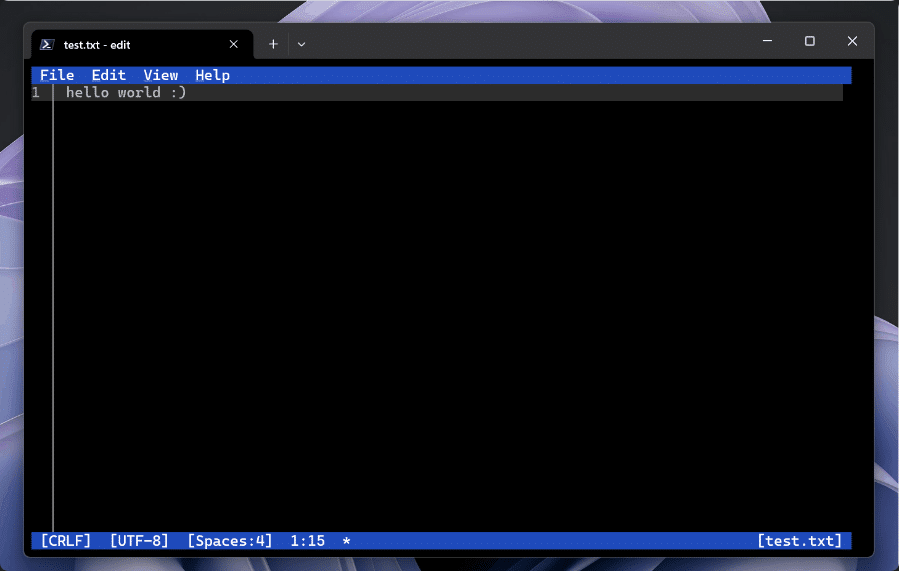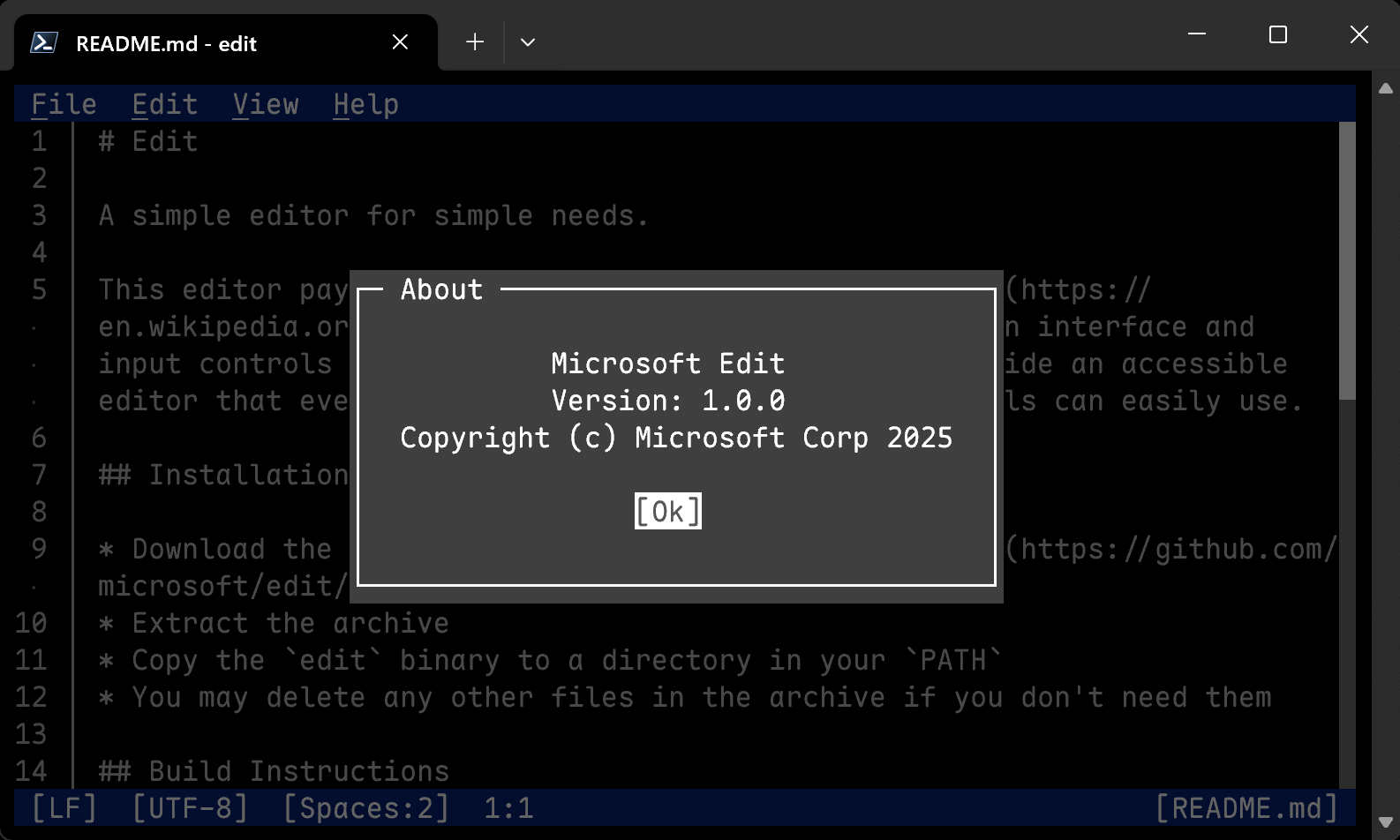Sure! Here’s the translation:
—
A lightweight, modern, and surprisingly intuitive alternative for editing files from the command line, without needing to learn Vim or Emacs.
Microsoft has officially announced the launch of Edit, a new terminal text editor designed for users looking for a simple, efficient, and easy-to-use solution directly from the console. Unveiled on May 19, 2025, by Christopher Nguyen, Product Manager of the Windows Terminal team, Edit is now available as an open-source project on GitHub and will be integrated into future versions of Windows 11 following its release in the Windows Insider program.
What exactly is Edit?
Edit is a TUI (Text User Interface) editor that operates from the terminal without requiring mouse usage, though it does offer mouse support. It is designed without complex modes (like Vim), meaning users can simply open a file, edit it, and save it with familiar shortcuts like Ctrl+S, Ctrl+Z, Ctrl+C, or Ctrl+V.
With a size of less than 250 kB, Edit is ultra-lightweight and runs instantly. Its design recalls the classic MS-DOS editor, yet features a visual interface inspired by Visual Studio Code.
Key features
- User-friendly terminal interface (TUI) with mouse support.
- Multi-window support: allows multiple files to be opened and switched between with Ctrl+P.
- Find and replace with support for regular expressions (regex).
- Word wrap via Alt+Z or from the menu.
- Standard shortcuts: Ctrl+Shift+S for “Save As,” Ctrl+F to search, etc.
- Lightweight and without external dependencies, ideal for controlled environments.
Why a new editor?
Microsoft explained that, until now, 64-bit Windows versions did not include a default console text editor. The 32-bit version still provided the classic edit.com from MS-DOS, but there was no modern equivalent. Edit was created to fill that gap, focusing on accessibility and simplicity.
Moreover, the team aimed to avoid the usability challenges posed by editors like Vim, whose unintuitive commands can be a barrier for less experienced developers.

Also available for Linux
Although designed for Windows, Edit is fully open source and can already be installed on Linux. Precompiled versions for Linux (x86 and ARM) are available on the official GitHub page. You just need to give execution permissions to the binary and move it to /usr/local/bin to use it like any other system tool.
That said, there are some current limitations, such as the lack of autocompletion when entering file paths, or the fact that it does not yet recognize ~ as a relative path to the home directory.
Ideal for beginners and educational environments
Edit is an excellent tool for those starting out in the terminal or programming, offering an experience similar to Notepad or Gedit, but in a console environment. Its uncomplicated approach, with accessible menus and familiar shortcuts, makes it a perfect tool for the quick editing of configuration files, scripts, or documentation.
How to try it
- 🔗 Official repository: github.com/microsoft/edit
- 🐧 Linux versions available in the Releases tab
- 📦 Open source under the MIT license
- 👨💻 Coming soon to the Windows 11 Insider channel
Edit represents Microsoft’s commitment to providing a tool that is genuinely missing in the Windows ecosystem: a modern, simple text editor designed to work from the console without complications. Furthermore, its availability on Linux opens the door to broader adoption by users seeking an accessible CLI editor, without sacrificing productivity or usability.
In a landscape dominated by powerful yet complex editors like Vim or Emacs, the arrival of Edit could make a real difference, especially for those who just want to edit a file… without having to consult Stack Overflow to exit the editor.

